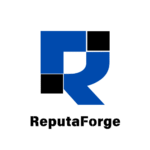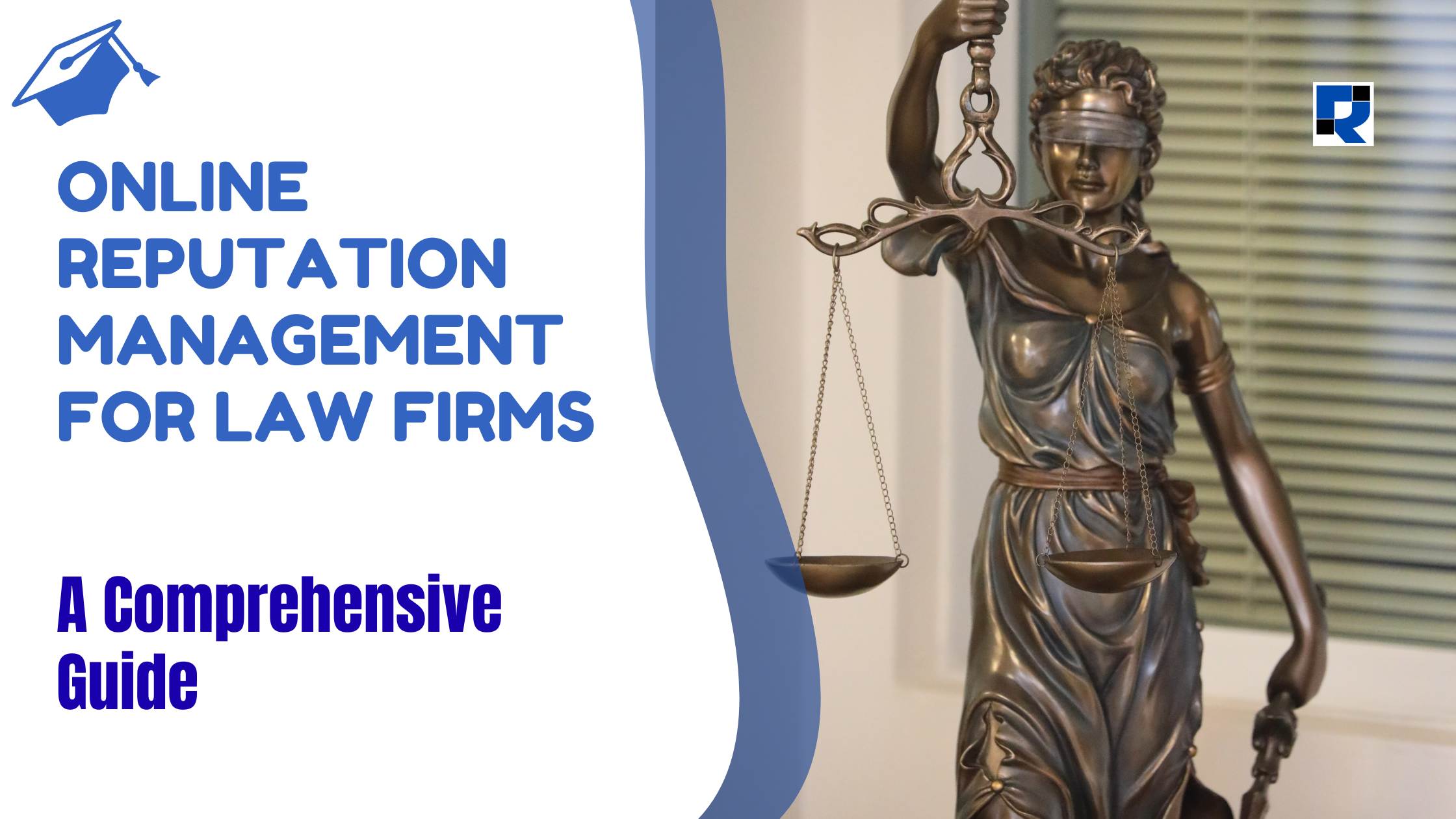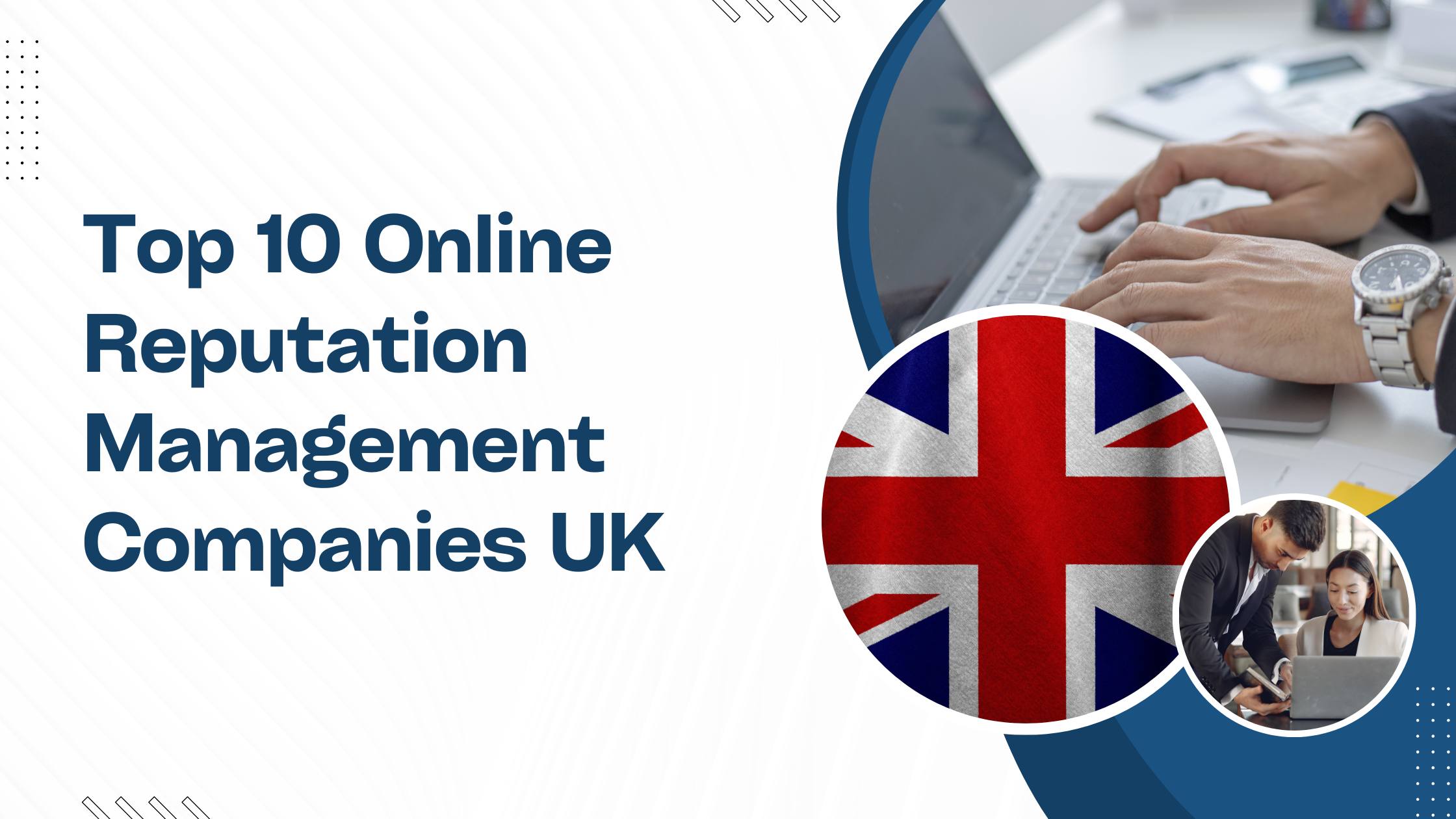Online Reputation Management (ORM) involves monitoring, influencing, and enhancing how a law firm or lawyer is perceived online. It encompasses strategies to manage digital content, such as reviews, social media posts, and search engine results, to build trust and credibility. For law firms, ORM includes responding to client feedback, promoting positive content, and addressing harmful or defamatory material to maintain a professional image in a digital-first world.
Why Law Firms Need Online Reputation Management
A law firm’s online reputation is a must-have critical asset. Research shows that 88% of consumers read online reviews to evaluate local businesses, including law firms, and 49% trust these reviews as much as personal recommendations. A strong online presence:
- Attracts Clients: Positive reviews and testimonials act as social proof, reassuring potential clients of a firm’s expertise.
- Boosts Search Visibility: Google prioritizes firms with good reviews for local SEO, increasing visibility.
- Builds Trust: A well-managed reputation establishes credibility, distinguishing firms in competitive markets.
- Retains Clients: Addressing feedback professionally fosters loyalty and strengthens client relationships.
Ignoring ORM can lead to lost opportunities, as negative content or poor visibility can deter prospects.
Statistics on Business Losses and Challenges Finding Clients Due to Bad Reputation
A bad online reputation can lead to significant financial and operational setbacks for law firms:
- Client Acquisition Challenges: A 2022 Thomson Reuters survey found that 76% of attorneys reported acquiring new clients as a key challenge, with 49% citing difficulty demonstrating value to prospects, often exacerbated by negative online feedback.
- Revenue Impact: According to a 2023 Thomson Reuters report, reputation as a driver of client awareness has dropped significantly, with only 10% of clients citing firm reputation as a top factor, down from 25% in 2012, indicating that a damaged reputation reduces top-of-mind consideration.
- Firm Closures: Data from the Solicitors Regulation Authority over the 12 months to end of May 2025, 497 firms have closed in UK, with many citing reputational damage and client loss as contributing factors, leading to higher insurance premiums and reduced competitiveness.
- Client Trust Erosion: A 2024 study revealed that 64% of law firms lose clients due to cost concerns or inadequate responses to negative feedback, highlighting the link between reputation and client retention.
- Economic Vulnerability: Firms with reputational issues face increased scrutiny and higher professional liability insurance costs, further straining finances, especially for small and mid-sized firms.
These statistics underscore how a tarnished reputation directly impacts client acquisition, retention, and overall business viability.
Challenges in Managing Online Reputation for Law Firms
Law firms face unique and complex challenges in maintaining a positive online reputation, as their digital presence directly impacts client trust and business success:
- Negative Reviews: A single dissatisfied client can post a scathing review on platforms like Google, Yelp, or Avvo, which can remain highly visible for years. These reviews, even if misleading or exaggerated, can deter potential clients, as prospective clients often rely heavily on online feedback to evaluate a firm’s credibility and competence.
- Defamatory Content: False or malicious content, such as baseless accusations of misconduct or smear campaigns by competitors, can spread rapidly across social media, blogs, or obscure websites. Such content can severely damage a law firm’s reputation, erode public trust, and lead to long-term financial consequences if not addressed promptly and effectively.
- Time Constraints: Lawyers are often consumed by demanding caseloads, court appearances, and client consultations, leaving little time to actively monitor or manage their online presence. This lack of availability can result in negative content going unnoticed or unaddressed, allowing it to gain traction and cause further reputational harm.
- Ethical Boundaries: Responding to online criticism requires careful navigation of ethical guidelines, such as those outlined by the American Bar Association (ABA). Lawyers must avoid disclosing confidential client information or engaging in public disputes that could violate professional conduct rules, making it challenging to counter negative narratives without breaching ethical standards.
- Platform Complexity: Effectively managing a law firm’s reputation across diverse platforms like Google Reviews, social media (e.g., LinkedIn, Twitter), and legal directories (e.g., Martindale-Hubbell) demands technical expertise in digital marketing and search engine optimization (SEO). Many firms lack the in-house skills to navigate these platforms’ algorithms, policies, and response mechanisms.
- Permanence of Content: Unlike traditional media, where retractions or corrections can mitigate damage, online content is often archived, cached, or shared across multiple platforms, making it nearly impossible to fully remove. This permanence amplifies the long-term impact of negative content, requiring proactive strategies to suppress or overshadow it with positive material.
Types of Defamation Law Firms and Lawyers Image
Defamation, which includes libel (written) and slander (spoken), is a significant threat to law firms. Common types include:
- False Reviews: Non-clients or competitors posting fake negative reviews on platforms like Google or Yelp.
- Malicious News Articles: Inaccurate reports accusing firms of misconduct, such as the case of a client falsely accused in 25 news articles, requiring legal action to remove.
- Online Impersonation: Fake social media profiles spreading false, damaging statements.
- Revenge Porn or Harassment: Disgruntled individuals posting sensitive or private content to harm a lawyer’s reputation.
- Data Breaches: Exposure of sensitive client information, leading to reputational damage.
To be actionable, defamatory statements must be false, published to a third party, and cause harm, such as lost business or professional credibility.
Key Considerations for Law Firms in ORM
When managing their online reputation, law firms should keep the following in mind:
- Proactivity: Regularly monitor online presence using tools like Google Alerts to catch issues early.
- Professional Responses: Address negative feedback calmly and ethically, avoiding client confidentiality breaches.
- Authenticity: Promote genuine content, such as client testimonials or case studies, to build trust.
- Legal Recourse: Understand when to pursue legal remedies, like cease-and-desist letters or defamation lawsuits, for false content.
- Consistency: Maintain a cohesive brand across platforms, ensuring content aligns with the firm’s values.
- Local Focus: Optimize for local SEO to attract community-based clients, especially for small firms.
When to Hire an ORM Company
Law firms should consider hiring an ORM company when:
- Negative Links Rank on Google: Harmful content or reviews dominate top search results, requiring professional online reputation management strategies to suppress them.
- Negative Content Persists: If defamatory or harmful content remains online despite DIY efforts.
- Time is Limited: Busy legal professionals lack the bandwidth to monitor and manage their digital presence.
- Complex Issues Arise: Cases involving defamation, fake reviews, or impersonation require specialized expertise.
- Crisis Management is Needed: During a reputational crisis, such as negative press or viral complaints.
- Proactive Branding is Desired: To build a strong, positive online presence to outrank competitors.
How an ORM Company Like ReputaForge Helps
ReputaForge offers tailored solutions to address law firms’ reputation challenges:
- Negative Content Removal: Identifies and flags false or defamatory content for removal, leveraging platform policies or legal strategies like DMCA takedown notices.
- Suppress Negative Results from Google: Implement advanced online reputation management strategies to push negative search results lower, ensuring positive content dominates Google’s rankings.
- Positive Content Promotion: Creates and optimizes blogs, testimonials, and social media posts to boost positive search results.
- Review Management: Encourages authentic client reviews and responds professionally to negative feedback.
- SEO Optimization: Enhances website and content visibility to suppress negative results and improve local SEO.
- Real-Time Monitoring: Tracks brand mentions across platforms with instant alerts for potential issues.
- Crisis Management: Provides rapid response strategies to mitigate reputational damage.
ReputaForge’s expertise ensures law firms maintain a trustworthy online image, driving client acquisition and retention.
ReputaForge’s Process
ReputaForge follows a structured process to deliver results:
- Reputation Audit & Strategy Development: Assesses the firm’s current online presence, identifying negative content and opportunities. Creates a customized plan, prioritizing goals like content removal or positive branding.
- Implementation and Optimization: Produces high-quality, SEO-optimized content to promote the firm’s expertise and remove defamatory content or push it down search rankings.
- Monitoring and Response: Tracks mentions and responds to reviews, ensuring a professional tone.
- Regular Client Reporting: Provides consistent updates and detailed reports to clients, outlining progress, metrics, and next steps to ensure transparency and alignment with reputation goals.
Pricing for ORM Services
ORM costs vary based on the scope of work. According to industry insights, monthly fees range from $500 to $10,000, depending on:
- Firm Size: Larger firms with extensive online footprints require more resources.
- Damage Extent: Simple review management is less costly than removing defamatory articles.
- Services Included: SEO, PR, or legal support increases costs.
- Provider Expertise: ReputaForge’s combination of legal and digital marketing expertise may command premium rates but offers substantial ROI.
ReputaForge offers flexible month-to-month or project-based pricing, tailored to the firm’s needs. For precise costs, contact ReputaForge at https://www.reputaforge.com.
ReputaForge’s Expertise
ReputaForge stands out with:
- Legal and Digital Expertise: Combines legal knowledge with advanced SEO and content strategies.
- Proven Results: Successfully suppresses negative content and boosts positive visibility for clients.
- Ethical Practices: Focuses on transparent, policy-compliant methods to remove or manage content.
- Tailored Solutions: Customizes strategies for law firms, addressing unique challenges like defamation or client confidentiality.
- Affordable Pricing Plan: Offers cost-effective pricing structures tailored to law firms’ budgets, ensuring accessible reputation management solutions without compromising quality.
Conclusion
In 2026, online reputation management is non-negotiable for law firms aiming to thrive in a competitive digital landscape. A strong online presence attracts clients, builds trust, and mitigates the impact of negative content. Despite challenges like defamation and time constraints, law firms can protect their reputation by acting proactively, responding ethically, and leveraging expert ORM services. ReputaForge’s comprehensive approach—combining content removal, positive promotion, and real-time monitoring—empowers law firms to control their narrative and foster long-term success. Take the first step by auditing your online presence and partnering with ReputaForge to safeguard your firm’s most valuable asset: its reputation.
FAQs
Question 1: What is online reputation management (ORM) for law firms?
Answer: Online Reputation Management (ORM) for law firms involves monitoring and shaping their digital presence across platforms like Google, Yelp, and social media. It includes managing client reviews, promoting positive content like testimonials or blogs, and addressing negative or defamatory material. ORM ensures a firm’s online image reflects its professionalism and expertise, crucial in a digital era where 88% of consumers check reviews before choosing a service (2023 survey). For law firms, ORM must also comply with ethical guidelines, such as avoiding client confidentiality breaches, making it a specialized process.
Question 2: Why is online reputation management critical for law firms?
Answer: A strong online reputation directly impacts a law firm’s ability to attract and retain clients. According to a 2023 study, 49% of consumers trust online reviews as much as personal recommendations, and 76% of attorneys report client acquisition as a top challenge (Thomson Reuters, 2022). A positive digital presence boosts local SEO, builds trust, and differentiates firms in competitive markets. Conversely, negative reviews or defamatory content can lead to significant client loss, with 64% of firms losing clients due to inadequate responses to feedback (2024 study).
Question 3: What are the main challenges law firms face in managing their online reputation?
Answer: Law firms encounter several obstacles: negative reviews from dissatisfied clients, defamatory content like fake reviews or malicious articles, and time constraints that prevent consistent monitoring. Ethical constraints, such as American Bar Association rules on confidentiality, limit how firms can respond to criticism. Managing multiple platforms (Google, social media) requires technical expertise, and the permanence of online content makes damage control difficult. These challenges can result in lost clients and revenue if not addressed proactively.
Question 4: How does a bad online reputation affect a law firm’s business?
Answer: A bad online reputation can devastate a law firm’s business. A 2023 Thomson Reuters report noted that reputation’s role in client awareness dropped from 25% in 2012 to 10%, meaning firms with poor reputations struggle to stay top-of-mind. Additionally, 64% of firms lose clients due to negative feedback or cost concerns tied to reputational issues (2024 study). In extreme cases, reputational damage contributes to firm closures, with 572 UK law firms closing in a year partly due to client loss and increased insurance costs (Solicitors Regulation Authority, 2023).
Question 5: What types of defamation do law firms commonly face online?
Answer: Law firms face defamation like fake negative reviews on Google or Yelp, often posted by competitors or non-clients; malicious news articles falsely accusing firms of misconduct; and impersonation via fake social media profiles spreading lies. Other forms include harassment campaigns posting private content or data breach fallout that portrays firms as negligent. To be actionable, defamation must involve false statements causing harm, such as lost clients, and firms may need legal recourse like cease-and-desist letters to address them.
Question 6: When should a law firm hire an ORM company like ReputaForge?
Answer: A law firm should hire an ORM company when negative content persists despite DIY efforts, time constraints prevent consistent monitoring, or complex issues like defamation or impersonation arise. Firms facing a reputational crisis, such as viral negative press, or seeking proactive branding to outrank competitors also benefit. ReputaForge’s expertise in legal and digital strategies makes it ideal for firms needing rapid, ethical solutions to protect and enhance their online presence.
Question 7: How does ReputaForge help law firms manage their online reputation?
Answer: ReputaForge offers comprehensive ORM services tailored for law firms. It removes or suppresses defamatory content using platform policies or legal strategies like DMCA takedowns. The company promotes positive content, such as SEO-optimized blogs and testimonials, to boost search rankings. It manages reviews, encouraging authentic feedback and crafting professional responses. Real-time monitoring tools track brand mentions, and crisis management plans mitigate damage. ReputaForge’s legal and digital expertise ensures compliance and effectiveness, helping firms attract and retain clients.
Question 8: What is the typical cost of ORM services for law firms?
Answer: ORM costs for law firms typically range from $2,000 to $10,000 per month, depending on factors like firm size, the severity of reputational issues, and service scope (e.g., SEO, content removal, or PR). ReputaForge offers flexible pricing, including month-to-month or project-based plans tailored to specific needs. For accurate pricing, law firms should contact ReputaForge directly at https://www.reputaforge.com, as costs vary based on the complexity of the reputation management strategy.
Question 9: What steps does ReputaForge take to manage a law firm’s online reputation?
Answer: ReputaForge follows a structured process: (1) Conducts a reputation audit to assess the firm’s digital presence; (2) Develops a customized strategy targeting issues like negative reviews or defamation; (3) Creates SEO-optimized content, such as blogs or testimonials, to promote the firm; (4) Monitors brand mentions in real-time and manages reviews professionally; (5) Removes or suppresses harmful content; and (6) Tracks performance with analytics to refine strategies. This ensures a proactive, ethical approach to reputation management.
Question 10: Can law firms manage their online reputation without an ORM company?
Answer: Small firms with minimal issues may handle basic ORM tasks, like responding to reviews or posting content, using tools like Google Alerts. However, complex challenges—defamation, fake reviews, or crisis management—require expertise and time most firms lack. Ethical constraints and platform complexities further complicate DIY efforts. An ORM company like ReputaForge provides specialized knowledge, legal compliance, and advanced tools to effectively manage and protect a firm’s reputation, saving time and maximizing results.






